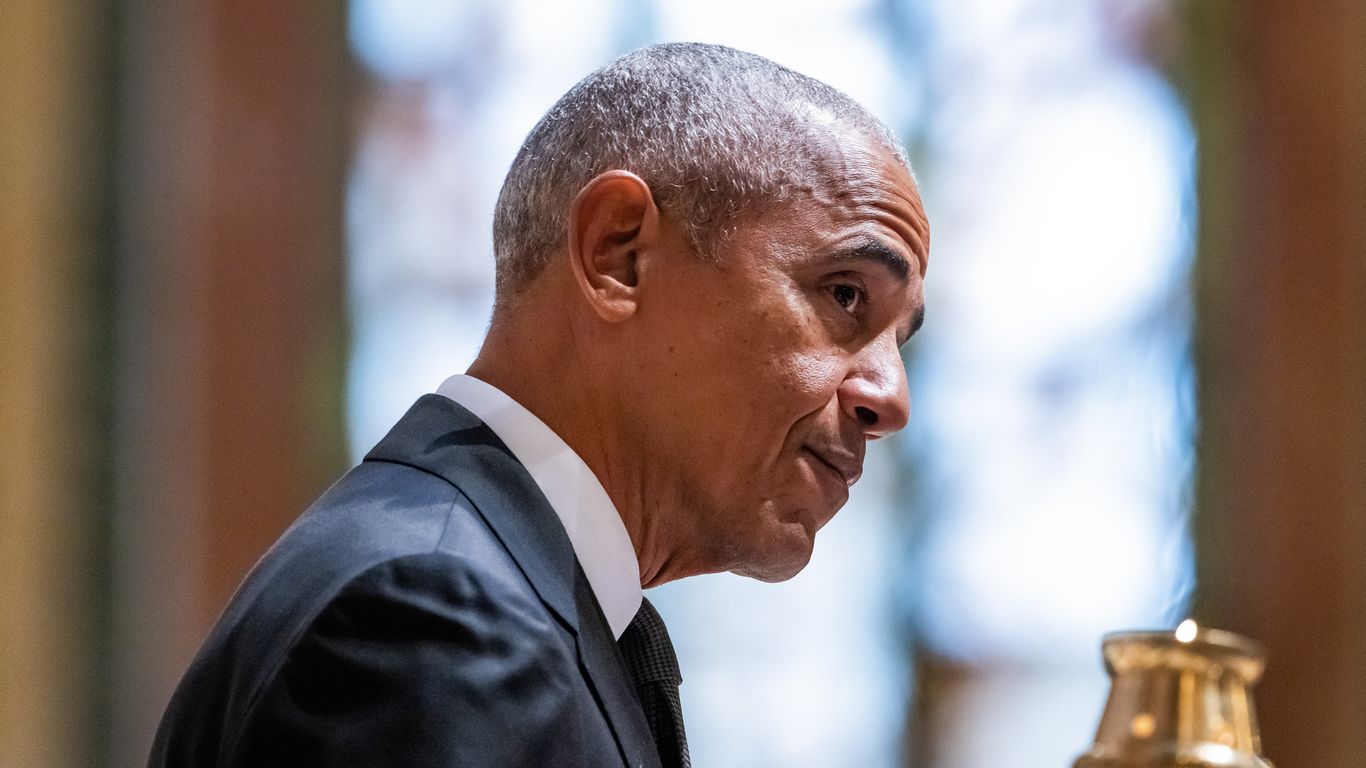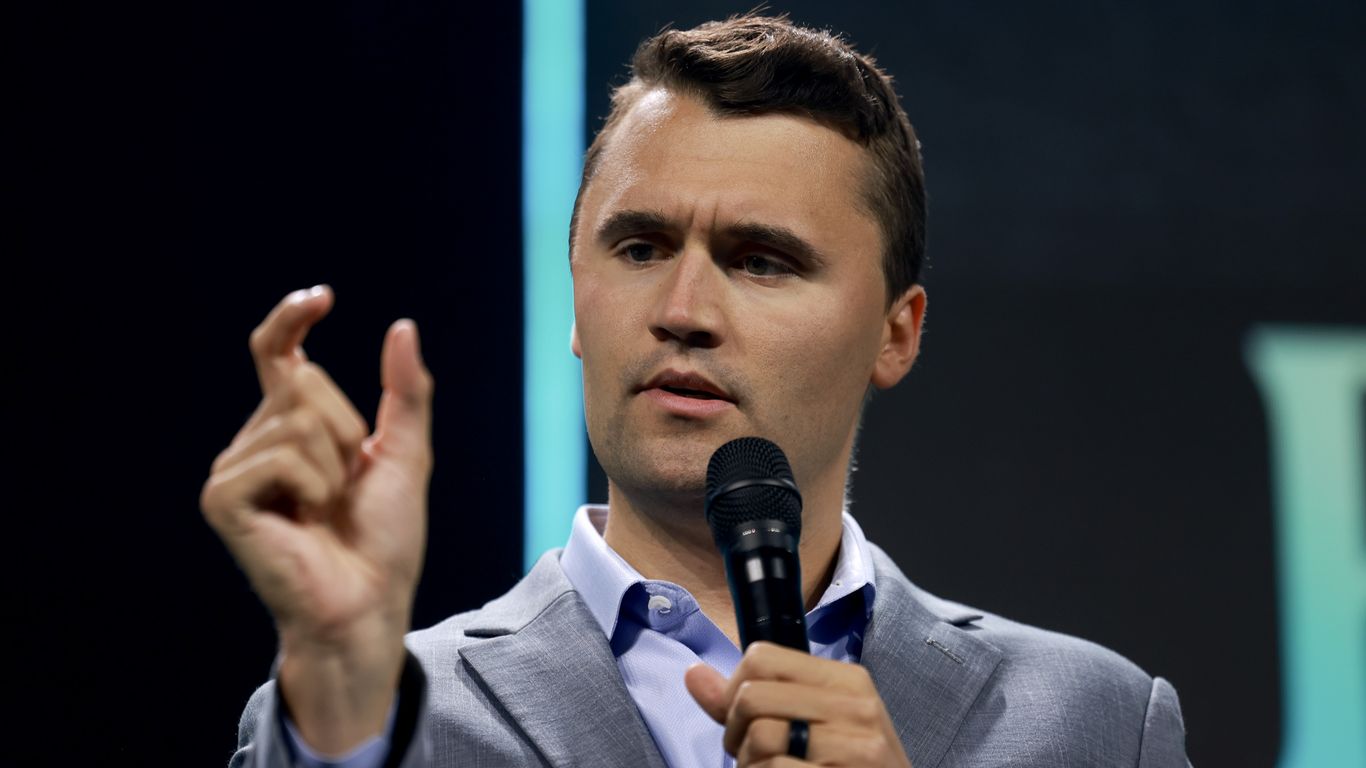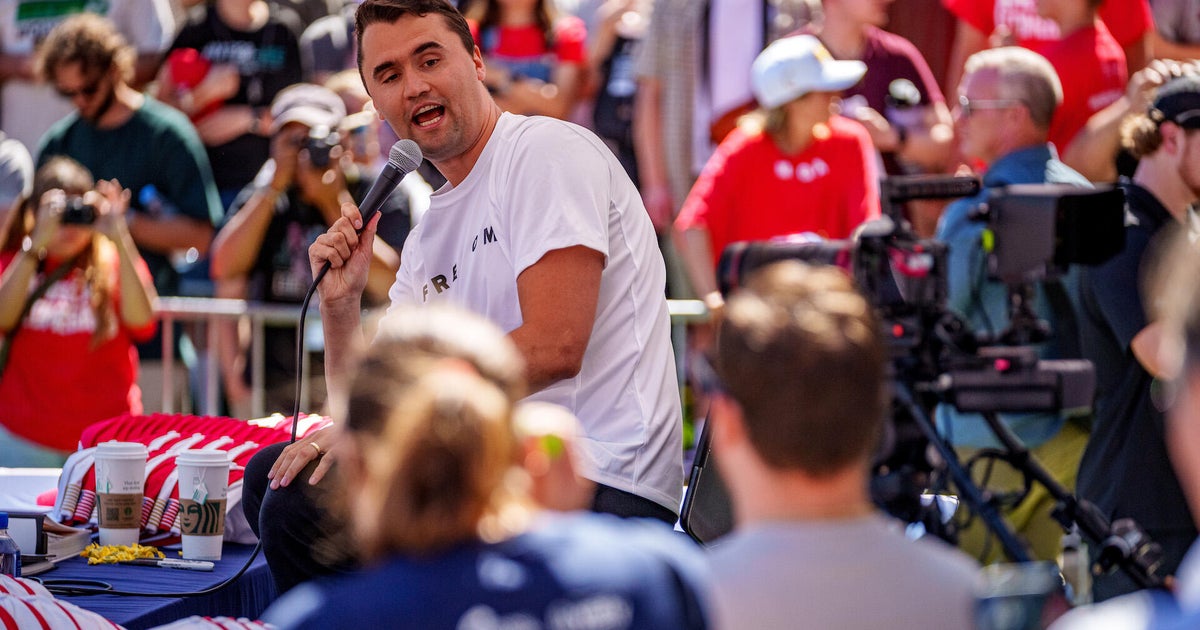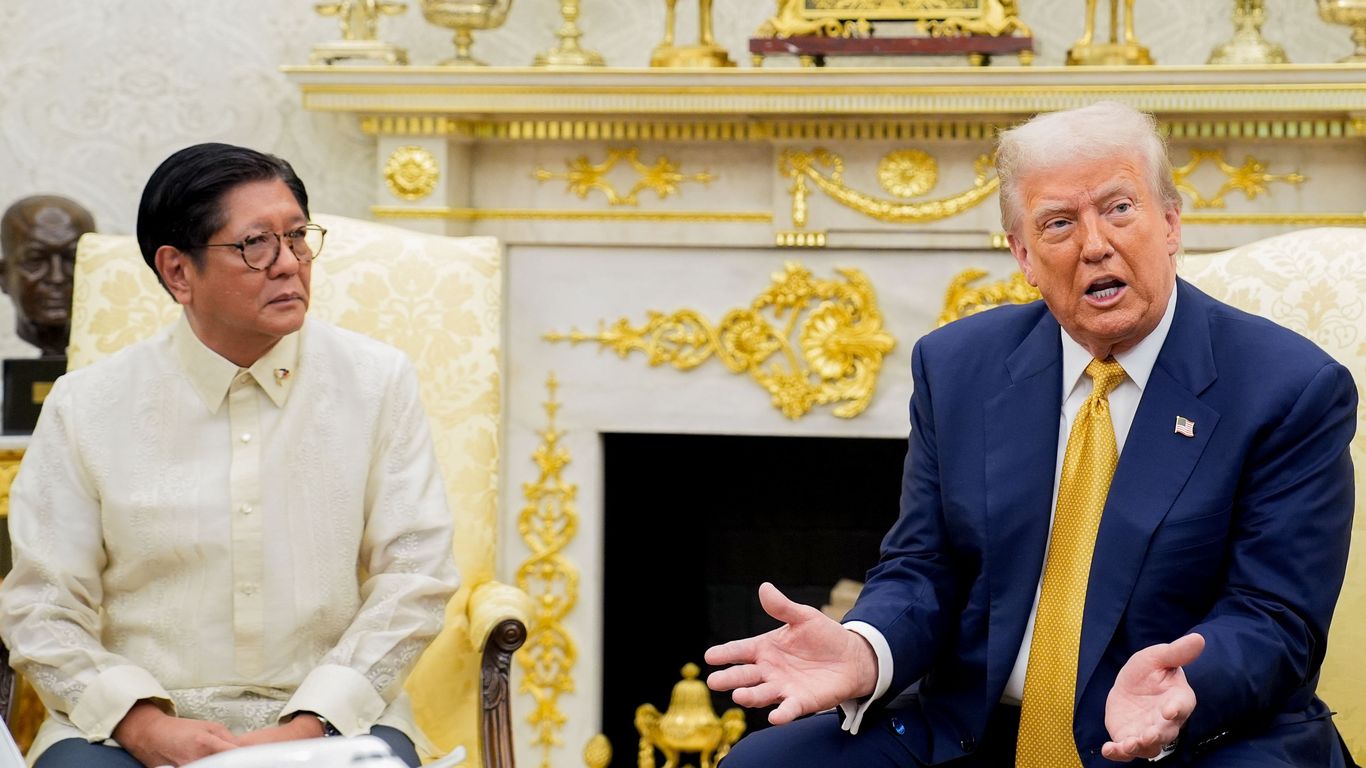Obama Condemns Government Coercion and Cancel Culture

Introduction
Former President Barack Obama has spoken out against the recent suspension of late-night talk show host Jimmy Kimmel by the current administration, calling it "government coercion". This comes after years of Obama publicly denouncing the rise of cancel culture and its damaging effects on free speech and expression. However, with Kimmel's suspension, it seems that the issue has reached a new and dangerous level.
Key Details
In a recent interview with Axios, Obama expressed his concerns about the government's involvement in censoring and punishing individuals for their speech and actions. He also brought up the double standards and hypocrisy shown by the current administration, who have often criticized cancel culture while now appearing to engage in it themselves.
Kimmel's suspension, which was triggered by a controversial joke he made on his show, has sparked a larger conversation about the limits of free speech and the role of the government in regulating it. Some argue that the government's involvement in censoring and punishing individuals can have a chilling effect on free speech and expression.
Impact
This incident sheds light on the growing concern over the erosion of free speech and expression in today's society. Obama's comments serve as a reminder to the public and the government about the importance of protecting these fundamental rights. As cancel culture continues to be a divisive issue, it is crucial to have open and honest conversations about it
About the People Mentioned
Barack Obama
Barack Hussein Obama II, born August 4, 1961, in Honolulu, Hawaii, is an American politician, lawyer, and author who served as the 44th President of the United States from 2009 to 2017[2][3][8]. He is widely recognized as the first African American to hold the nation’s highest office, marking a historic milestone in U.S. history[1][2][3]. Obama’s early life was shaped by a diverse heritage—his mother, Stanley Ann Dunham, was a white American from Kansas, and his father, Barack Obama Sr., was a Kenyan economist[2][4][9]. He spent part of his childhood in Indonesia before returning to Hawaii, where he was raised primarily by his maternal grandparents[4][5]. Obama attended Columbia University, graduating with a degree in political science, and later earned a law degree from Harvard Law School, where he became the first African American president of the Harvard Law Review[2][3][4]. After law school, he worked as a community organizer in Chicago, a civil rights attorney, and a lecturer at the University of Chicago Law School[2][3]. He entered politics as a member of the Illinois State Senate (1997–2004) and then represented Illinois in the U.S. Senate (2005–2008)[2][3]. His 2008 presidential campaign, built on themes of “hope” and “change,” resonated with voters during a period of economic uncertainty and war[2]. Obama defeated Republican John McCain to become president and was reelected in 2012, defeating Mitt Romney[3][5]. As president, Obama’s major domestic achievements included the Affordable Care Act (expanding health insurance coverage), economic stimulus measures in response to the 2008 financial crisis, and the repeal of “Don’t Ask, Don’t Tell,” allowing LGBTQ individuals to serve openly in the military[2][4]. In foreign policy, he oversaw the withdrawal of U.S. troops from Iraq, authorized the operation that killed Osama bin Laden, and pursued the normalization of relations with Cuba[4][6]. He was awarded the Nobel Peace Prize in 2009 for his efforts to strengthen international diplomacy[1][2]. Since leaving office, Obama has remained active in public life through his foundation, speaking engagements, and media projects, though he has generally maintained a lower public profile than some predecessors[2]. He continues to be a prominent voice on issues such as democracy, climate change, and civic engagement. As of late 2025, Obama is not holding any official government position but remains a symbol of progress in American politics and a respected figure in global discourse[2].
Jimmy Kimmel
James Christian Kimmel, known as Jimmy Kimmel, is an American television host and comedian born on November 13, 1967. He is best known as the host and executive producer of *Jimmy Kimmel Live!*, a late-night talk show on ABC that has aired since 2003. Kimmel holds the distinction of having the longest tenure among current U.S. late-night hosts, with 23 seasons, second only to Johnny Carson’s 30 seasons[^1^]. Before *Jimmy Kimmel Live!*, Kimmel gained recognition as co-host of Comedy Central’s *Win Ben Stein’s Money*, winning a Daytime Emmy Award for Best Game Show Host in 1999, and as co-host of *The Man Show*. He also co-founded Jackhole Industries, a production company behind shows such as *Crank Yankers*, *Sports Show with Norm Macdonald*, and *The Andy Milonakis Show*[^1^][^2^]. Kimmel has hosted major award ceremonies multiple times, including the Primetime Emmy Awards (2012, 2016, 2020) and the Academy Awards in 2017, 2018, 2023, and 2024. His style blends political satire with viral comedy segments, such as “Mean Tweets” and celebrity pranks, contributing to his widespread popularity[^1^][^4^]. In his personal life, Kimmel was first married to Gina Maddy with whom he has two children. Since 2013, he has been married to Molly McNearney, a co-head writer for his show, and they have two children together. Kimmel has publicly shared his experiences with his son Billy’s congenital heart condition, using his platform to raise awareness about healthcare issues[^4^]. Most recently, in September 2025, ABC suspended *Jimmy Kimmel Live!* for a week following controversial comments Kimmel made regarding the assassination of Charlie Kirk during a monologue[^1^]. Despite this, Kimmel remains an influential figure in American late-night television and comedy. [^1^]: Wikipedia [^2^]: Biography.com [^4^]: Hausabeats.com
About the Organizations Mentioned
Axios
Axios is a dynamic media company founded in January 2017 by veteran journalists Jim VandeHei, Mike Allen, and Roy Schwartz, with a mission to transform how news is delivered in the digital age. Frustrated by the clutter, bias, and inefficiency of traditional media, the founders engineered Axios around a simple but powerful idea: deliver the clearest, smartest, and most trustworthy news experience for both audiences and advertisers. Axios quickly gained recognition for its concise, clinical reporting style—presenting facts without partisan opinion, and avoiding editorial pages or overt political endorsements. This commitment to neutrality and factual integrity has helped Axios build trust with readers seeking reliable, efficient news. Axios covers a broad range of topics including politics, technology, business, health, science, and sports, with a signature format that distills complex stories into digestible, bullet-pointed updates. The company’s approach has been praised for its reliability and balanced perspective, earning it a “Middle” bias rating and high marks for factual reporting from independent media analysts. Beyond its newsroom, Axios expanded into enterprise communications with Axios HQ, an AI-powered platform that helps organizations—from startups to Fortune 500 companies—craft clear, impactful internal communications. This innovation reflects Axios’s broader influence in shaping how information is shared in both media and business environments. Today, Axios remains a privately held company with a growing audience and a reputation for innovation. Its commitment to transparency, efficiency, and trust continues to set it apart in the crowded media landscape, making it a go-to source for professionals and organizations seeking smart, trustworthy news and communication solutions.

















